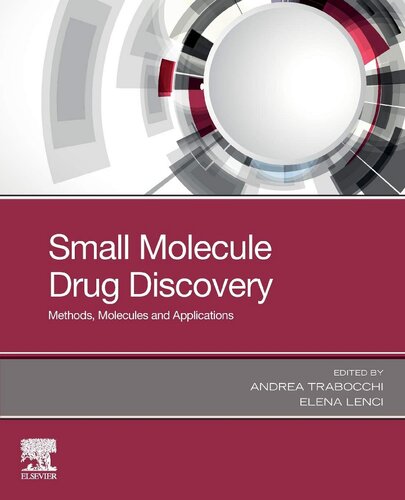

Most ebook files are in PDF format, so you can easily read them using various software such as Foxit Reader or directly on the Google Chrome browser.
Some ebook files are released by publishers in other formats such as .awz, .mobi, .epub, .fb2, etc. You may need to install specific software to read these formats on mobile/PC, such as Calibre.
Please read the tutorial at this link: https://ebookbell.com/faq
We offer FREE conversion to the popular formats you request; however, this may take some time. Therefore, right after payment, please email us, and we will try to provide the service as quickly as possible.
For some exceptional file formats or broken links (if any), please refrain from opening any disputes. Instead, email us first, and we will try to assist within a maximum of 6 hours.
EbookBell Team

4.1
30 reviewsSmall Molecule Drug Discovery: Methods, Molecules and Applications presents the methods used to identify bioactive small molecules, synthetic strategies and techniques to produce novel chemical entities and small molecule libraries, chemoinformatics to characterize and enumerate chemical libraries, and screening methods, including biophysical techniques, virtual screening and phenotypic screening. The second part of the book gives an overview of privileged cyclic small molecules and major classes of natural product-derived small molecules, including carbohydrate-derived compounds, peptides and peptidomimetics, and alkaloid-inspired compounds. The last section comprises an exciting collection of selected case studies on drug discovery enabled by small molecules in the fields of cancer research, CNS diseases and infectious diseases.
The discovery of novel molecular entities capable of specific interactions represents a significant challenge in early drug discovery. Small molecules are low molecular weight organic compounds that include natural products and metabolites, as well as drugs and other xenobiotics. When the biological target is well defined and understood, the rational design of small molecule ligands is possible. Alternatively, small molecule libraries are being used for unbiased assays for complex diseases where a target is unknown or multiple factors contribute to a disease pathology.